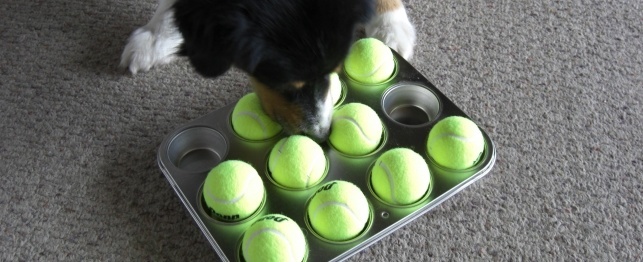Coming home only to find undesirable landscaping projects in your yard courtesy of your favorite puppy after a long day at work can cause your blood pressure to rise to dangerous levels. This article on dog training discusses understanding and dealing with dog digging.
It is in the nature of a lot of dog breeds to enjoy digging and should definitely be allowed to give into this need every now and then. However, there is a difference between allowing your dog to express this need and giving your dog free reign to landscape your yard to his heart's content.
If you have noticed your dog developing this need, it will take some time to resolve this without the cost of your garden or flower bed.
If you have a green thumb or otherwise enjoy having a well maintained garden or yard, before adopting a dog, it is important to consider the dog breed you are thinking of adopting. Certain breeds such as terriers, huskies, malamutes have been shown to have a voracious appetite for digging.
Although staying away from certain breeds such as those noted above may be advisable if you do not want a digging dog, it is important to note that each dog is an individual and therefore, it is hard to predict how each dog will act and if they will become a digger or not.
Some of the Reasons that dogs dig?
1. Need for exercise.
If you do not exercise your dog enough, it may turn to digging to get rid of the pent up nervous energy.
2. A bored dog.
Dogs usually need something to do that is both interesting and rewarding in order to pass the time. Digging serves both purposes for a bored dog to distract him from an empty day.
3. Confinement
By nature, some dogs that usually dig under a fence or an enclosure are escape artists despite being exercised. They simply want to see what is on the other side of the fence.
4. Separation Anxiety
By digging, a dog suffering from separation anxiety thinks it will get closer to you. This is a complex psychological problem.
Solutions to Dog Digging
Many of the dog obedience training solutions can be derived from the reasons stated above - more exercise consisting of vigorous exercise such as walking for about 45 minutes a day which may wear him out so that he will spend the rest of the day snoozing, giving him toys and chews to play with and rotating with different toys every few days when he starts getting bored with the ones given, crating or keeping him inside the house for the dog that fancies himself an escape artist.
For dogs that use digging as a pastime, here are some tips to consider;
1. Access Restriction
Restrict his access to the yard unless you are there to supervise him. Without access, there will be no opportunity to dig. You can also designate a specific area that he is allowed to dig. When he starts digging in this area start praising him and give him a treat. When he starts digging in other areas tell him no. Do this often enough until he becomes conditioned to only dig in the allowable area through the positive reinforcement.
2. Make Changes in You Gardening
If more of your delicate plants and flowers are being damaged by the digging, start planting flowers and plants that are able to withstand dog digging because they have deeper roots and thorny defenses such as roses. If you can't beat 'em, join 'em.
3. Chicken-wire
This is more time consuming but is very effective. It involves placing chicken wire under an inch or two of the turf in your yard. Your dog will begin digging not knowing that it is present. After a few attempts of fruitless digging, he will give up and quit digging.

 MORE Games That Delight Dogs
MORE Games That Delight Dogs
MORE Games That Delight Dogs
MORE Games That Delight Dogs
 Secrets To German Shepherd Coaching
Keep the courses sessions short but often. When things lose
Secrets To German Shepherd Coaching
Keep the courses sessions short but often. When things lose
 Commercial Brain Games Challenge Your Dog
Commercial Brain Games Challenge Your Dog
Commercial Brain Games Challenge Your Dog
Commercial Brain Games Challenge Your Dog
 The Fabulous Muffin Tin Game for Dogs
The Fabulous Muffin Tin Game for Dogs
The Fabulous Muffin Tin Game for Dogs
The Fabulous Muffin Tin Game for Dogs
 Train Your Border Collie Dog With These Helpful Hints
The day your new puppy comes home with you will be filled
Train Your Border Collie Dog With These Helpful Hints
The day your new puppy comes home with you will be filled